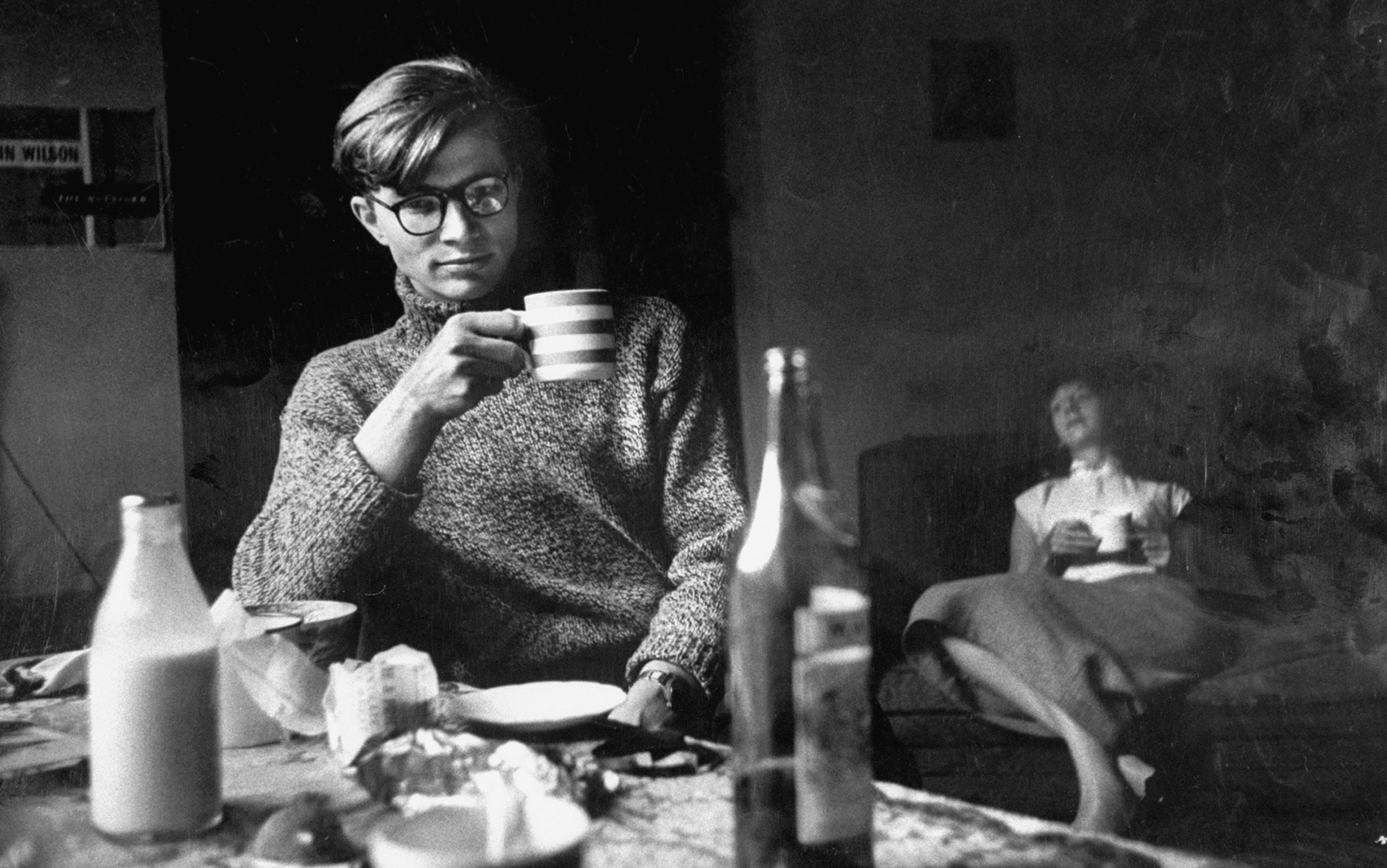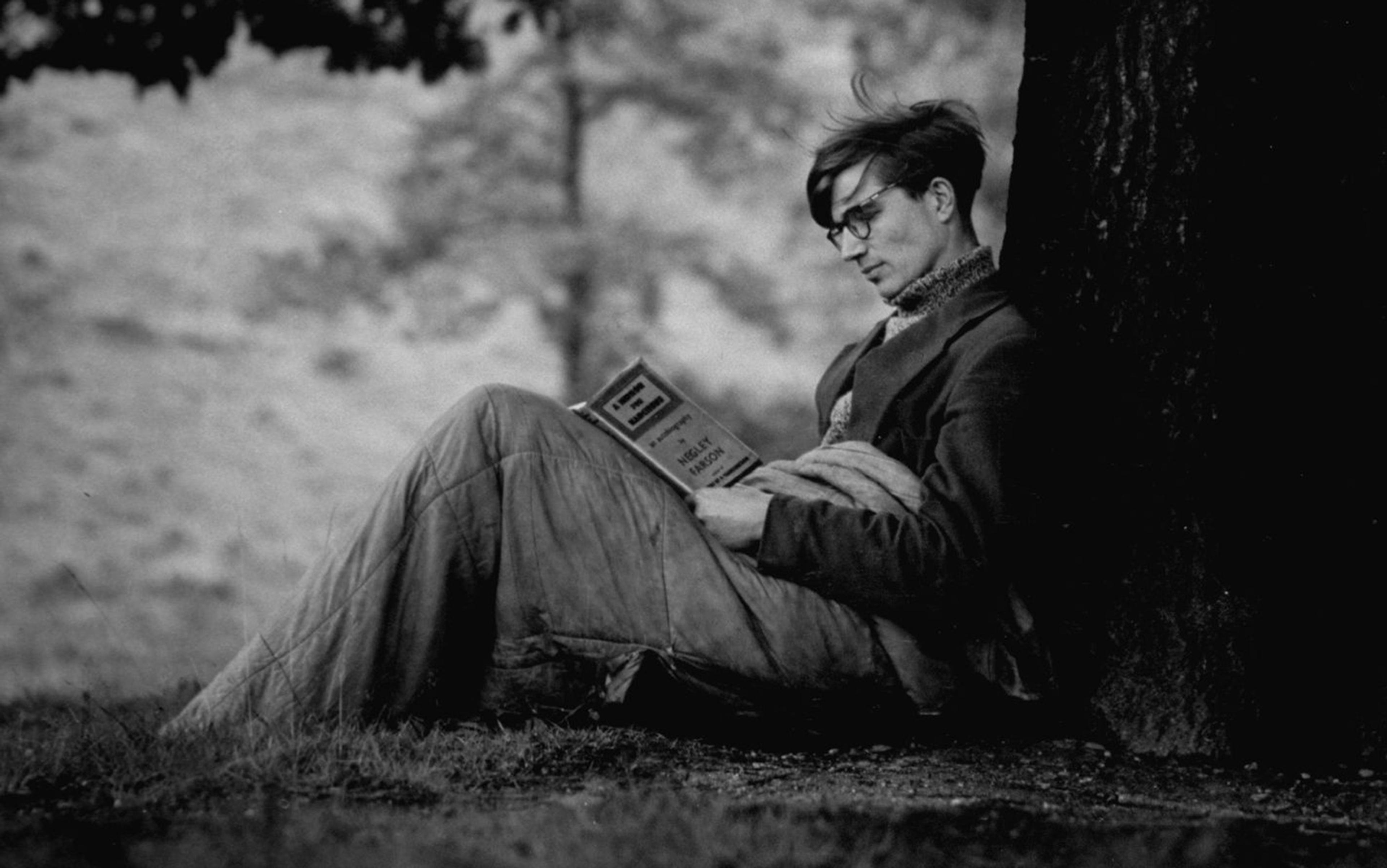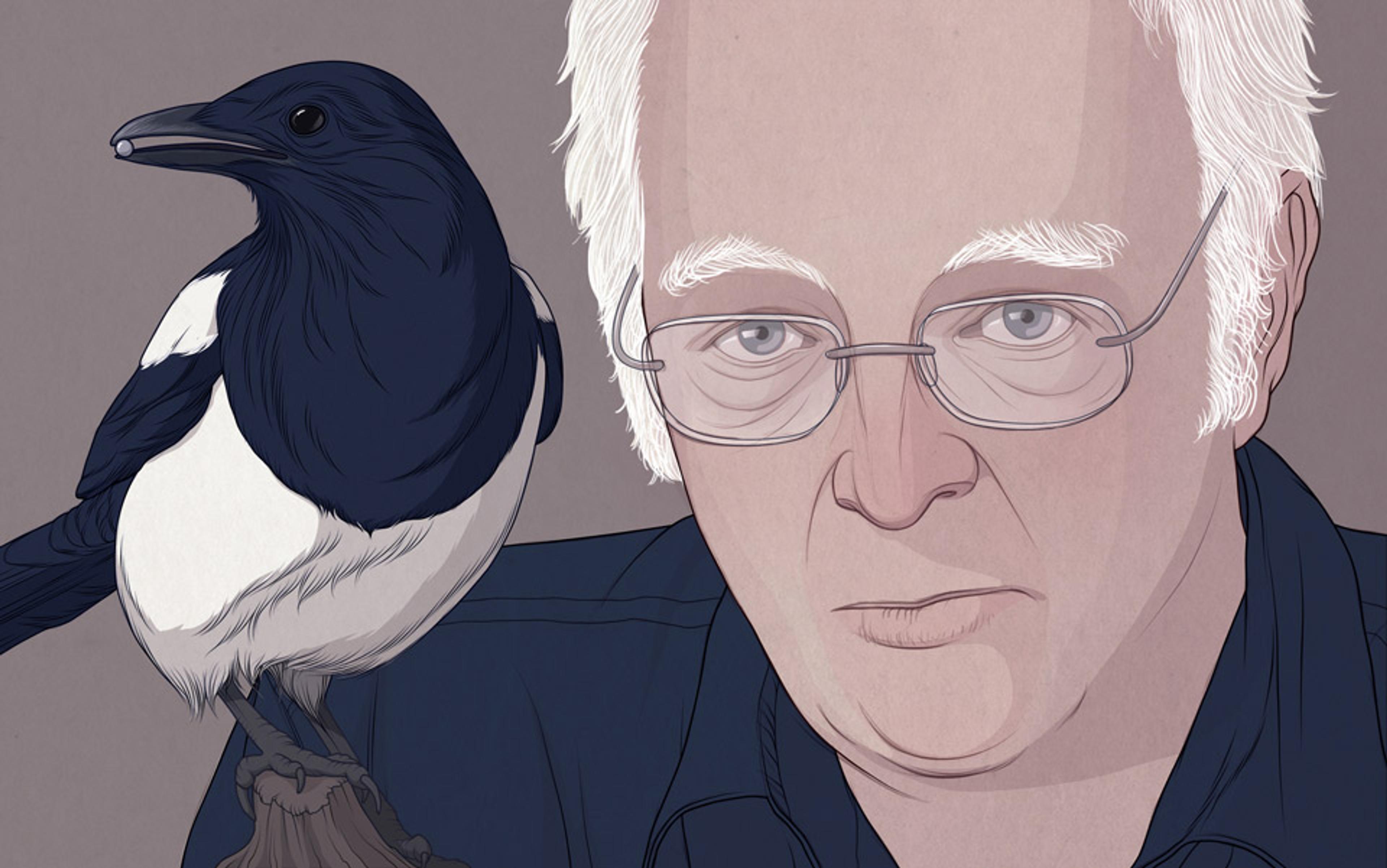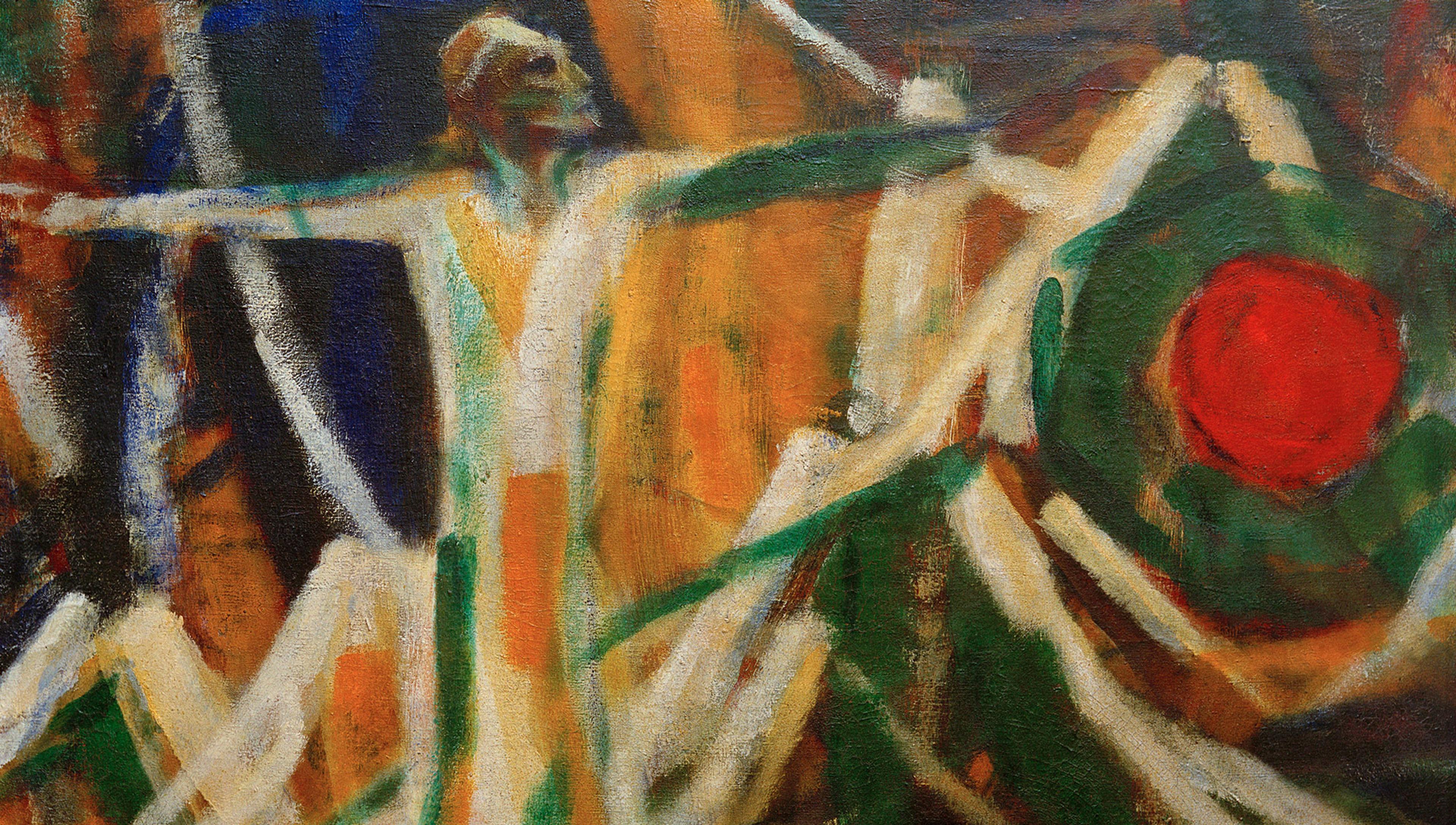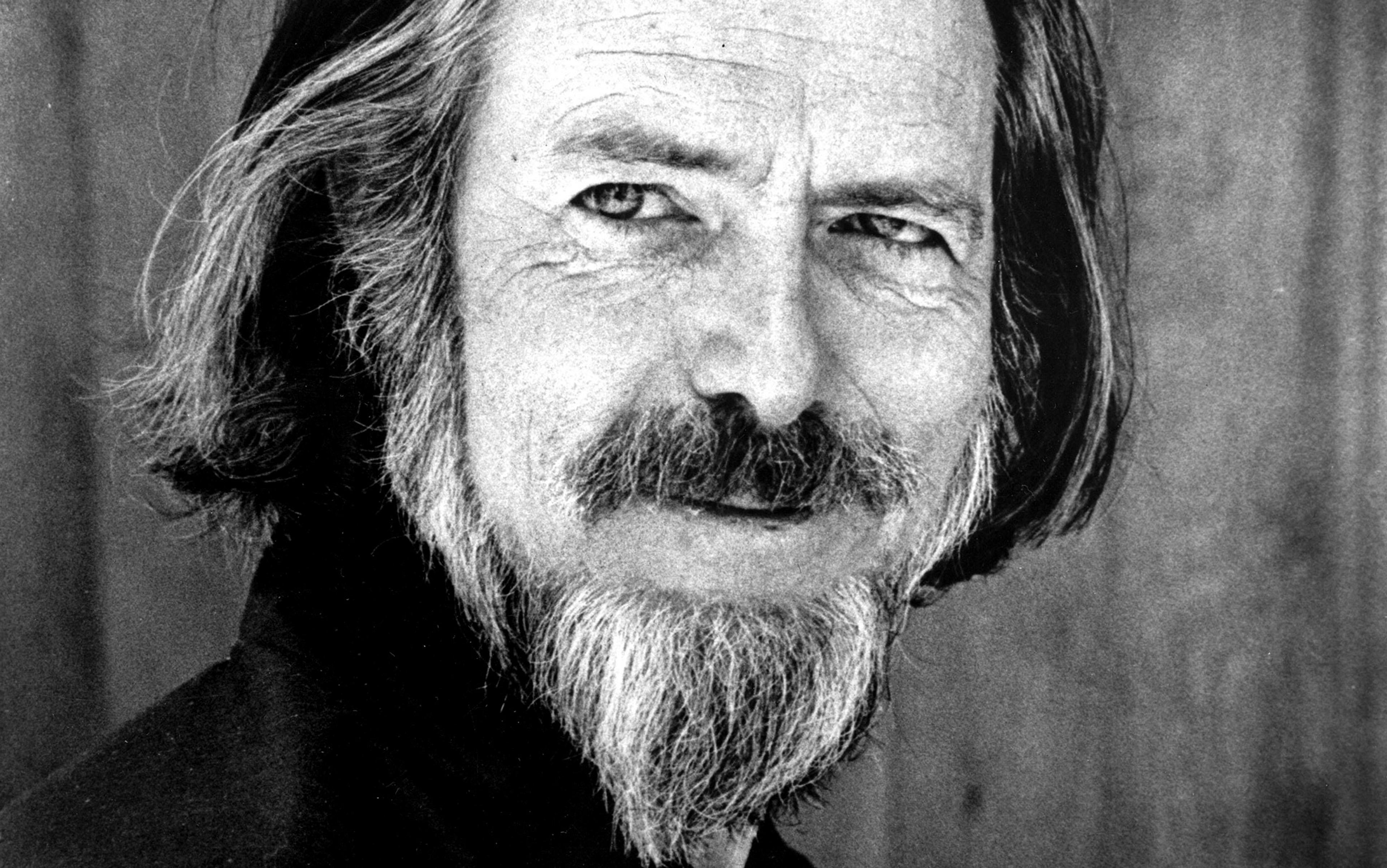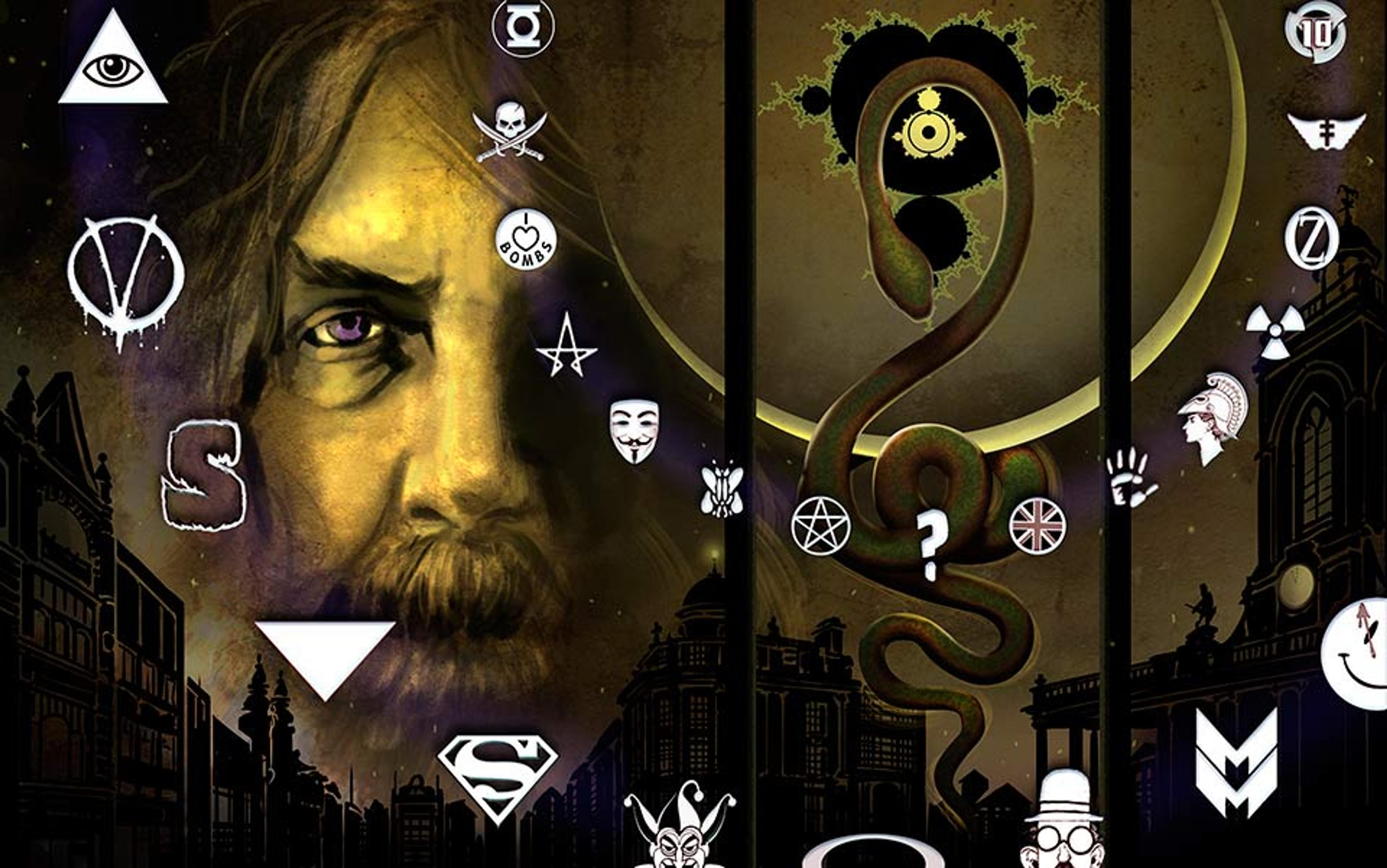Like Aldous Huxley and C S Lewis with John F Kennedy, the English writer Colin Wilson had the misfortune of dying on the same day as a vastly (and justly) more famous man: Nelson Mandela. When Wilson’s first book, The Outsider, came out in 1956 — coinciding with the arrival of a noisy cohort of anti-establishment writers labelled the ‘Angry Young Men’ — he became an overnight sensation: a self-taught, ‘staggeringly erudite’, working-class, provincial 24-year-old hailed by highbrow reviewers as Britain’s answer to Jean-Paul Sartre and Albert Camus. Almost as quickly, he was dropped, and his subsequent prolific literary career, which moved from philosophy and religion through psychology and parapsychology to the wilder shores of Atlantis and science fiction, is usually taken to vindicate those second thoughts. A handful of obituaries have appeared in the quality press since 5 December. Most have a tincture of condescension, which is understandable. Wilson’s evaluation of his own importance as a writer and thinker was well out of kilter with that of most critics, and indeed with reality.
And yet, and yet… it’s a safe bet that some readers of Aeon will remember him fondly, and owe to him their first introduction to this magazine’s characteristic themes. I’ll cheerfully admit it myself. Reading Wilson’s The Outsider at the age of 16 or so opened my mind to writers, thinkers and ideas I’d never heard of before, and gave a new significance to some that I had. Sartre, Camus, Henri Barbusse, Ernest Hemingway, T E Lawrence, T S Eliot, Friedrich Nietzsche and many others, including William Blake and George Fox, founder of the Quakers, were all portrayed making heroic but usually ill‑fated attempts to storm a fortress of existential perplexity to which Wilson (as he strongly hinted) had found the key. The Outsider ticks all the boxes for a successful cult book: readable style, significant subject-matter, and reckless assertion. The effect was exhilarating.
It was also, unfortunately, often misleading. Wilson had read all the books he cited and given them much thought, but the thought was slapdash, and Wilson took care to be off down the street, whistling, cash in hand, before the cement crumbled. Here he is, for instance, on Roquentin, the narrator of Sartre’s novel La Nausée (1938):
Roquentin feels insignificant before things. Without the meaning his Will would normally impose on it, his existence is absurd. Causality — Hume’s bugbear — has collapsed; consequently there are no adventures.
The aside — ‘Hume’s bugbear’ — is pure sleight of hand. (David Hume, after all, was convinced he’d solved the problem of causality: it was no bugbear to him.) Likewise the capitalisation of ‘Will’, a crafty reminder that this is not just any will, but the metaphysical Will of Arthur Schopenhauer’s The World as Will and Idea (1818), to whose ‘formidable dialectical apparatus’ Wilson had tipped his hat a few pages earlier. Nevertheless, there’s no denying Wilson’s knack of engaging the reader, or his capacity to make an account of any piece of philosophy or literature race like an action sequence.
For a year or two, I read every Colin Wilson book I could find, and tried to make sense of other books — many of which he’d turned me on to — through the ideas I found in his. At one point (just before my final school exams, as I recall), I found myself pacing up and down struggling to integrate what I understood of Wilson, Arthur Koestler, Pierre Teilhard de Chardin, Carl Jung, William Blake, Lewis Mumford and Erich von Däniken. It would have made one hell of a space opera, and it nearly did. My ambition, idiotic in retrospect, was Wilson’s fault in more ways than one. It was an application of the method he applied to philosophers and mystics in The Outsider, and to everything from astronomy and music through to magic and sex crime in the rest of his vast output: he tried to make everything fit together into a coherent story. When he wrote his first book, he’d read more than enough to put most undergraduates to shame, but he’d never had what a university education might have given him: a training in critical thinking.
He certainly thought he had that capacity. It was a perfect instance of the Dunning-Kruger effect: his inability to think critically was itself what made him think he could. This extract, taken almost at random from one of his occasional book reviews, is all too characteristic (the title under review was Dennis Price’s The Missing Years of Jesus, from 2009):
When I gathered from the jacket that the book argues that Jesus came to England, my reaction was understandable skepticism. But when I began to read, I saw my doubts were premature. […] The likelihood of Jesus remaining in Nazareth as a carpenter is surely low. Such a person would have been anxious to travel. And since he was a member of a fairly large family, with brothers and sisters — and therefore not his parents’ sole support — nothing is more likely than that he would take to the road. […] Am I convinced? That is the wrong word, since there is no actual evidence that Jesus visited Cornwall, Stonehenge or Glastonbury. But certainly, this is a book I would recommend to everyone who is interested in archaeology and in the history of religion.
When this lazy technique of the raised eyebrow followed by the indulgent nod is applied to the question of whether Jesus ever visited England, the result is bathetic. It had more serious consequences when, in 1974, Wilson concluded a long review of Joachim Fest’s Hitler for the journal Books and Bookmen with some fatuous speculation about the Holocaust. His gratuitous and bewildered comments on a pamphlet of Holocaust-denial produced by a neo-Nazi small press got promptly and authoritatively rubbished in the letters pages, stubbornly defended by Wilson, and is cited by Holocaust ‘revisionists’ to this day. One of them, Alexander Baron, wrote: ‘The favourable review this poorly researched but seminal pamphlet received in the November 1974 issue of Books and Bookmen by the impressionable Colin Wilson can be said really to have launched the modern era of Holocaust Revisionism.’
If true, that’s quite some responsibility.
The only possible excuse is that Wilson had read scores of books on the Nazis. Realising (if only from their mutual incompatibilities) that some percentage of them had to be sensational trash, he was left flailing to determine which was which. It would be unfair, however, to accuse Wilson of sympathy with Nazism or anti-Semitism. He was a sexist by principle, but to the best of my knowledge he never wrote a word on race. His political thinking, such as it was, shifted from an unconsidered socialism to a fervent Thatcherism and left negligible traces in his output. His rebuttal of Marx’s labour theory of value, which appears en passant in a chapter of his book Bernard Shaw: A Reassessment (1969), is a gem of incomprehension.
The truth is that he wrote one book over and over, making the same point in 150 different ways
And yet, and yet… if politics was not his strong point, neither was it his main point. Nor indeed was the vast mass of uncritically assimilated information, about existentialism or UFOs or wine or whatever this year’s potboiler was ostensibly about, which he avidly read and reprocessed. The mistake made in most overviews of his career is to think he wrote 150 books on such a broad range of subjects that he spread himself too thin across all of them. The truth is, I think, that he wrote one book over and over, making the same point in 150 different ways.
What I, in common with his other enthusiastic readers, took from his work was a conviction and a technique. The conviction was that the everyday world might be — as to adolescents it certainly is — full of boredom and triviality, but the wider world of nature, art, and learning is full of inexhaustible interest. But it’s easy to lose sight of the latter, and let ourselves be trapped in the former. The technique, the trick for lifting oneself from the one world to the other, was simple enough: intense concentration followed by relaxation will lead to elation.
The thing is, it does work.
And for that discovery, which I made while staring at a teapot in morning sunlight after reading Wilson’s slim volume Poetry and Mysticism (1974), I’ll always be grateful.
